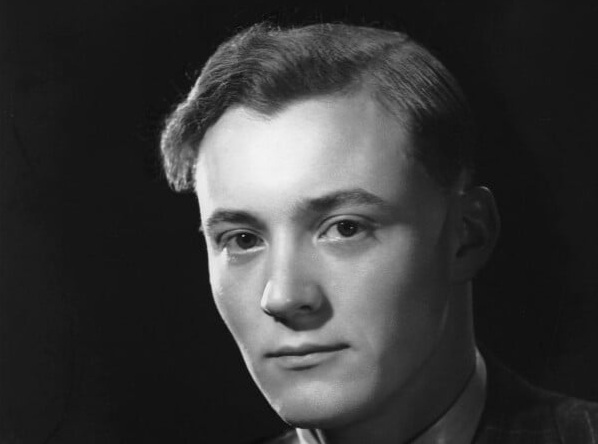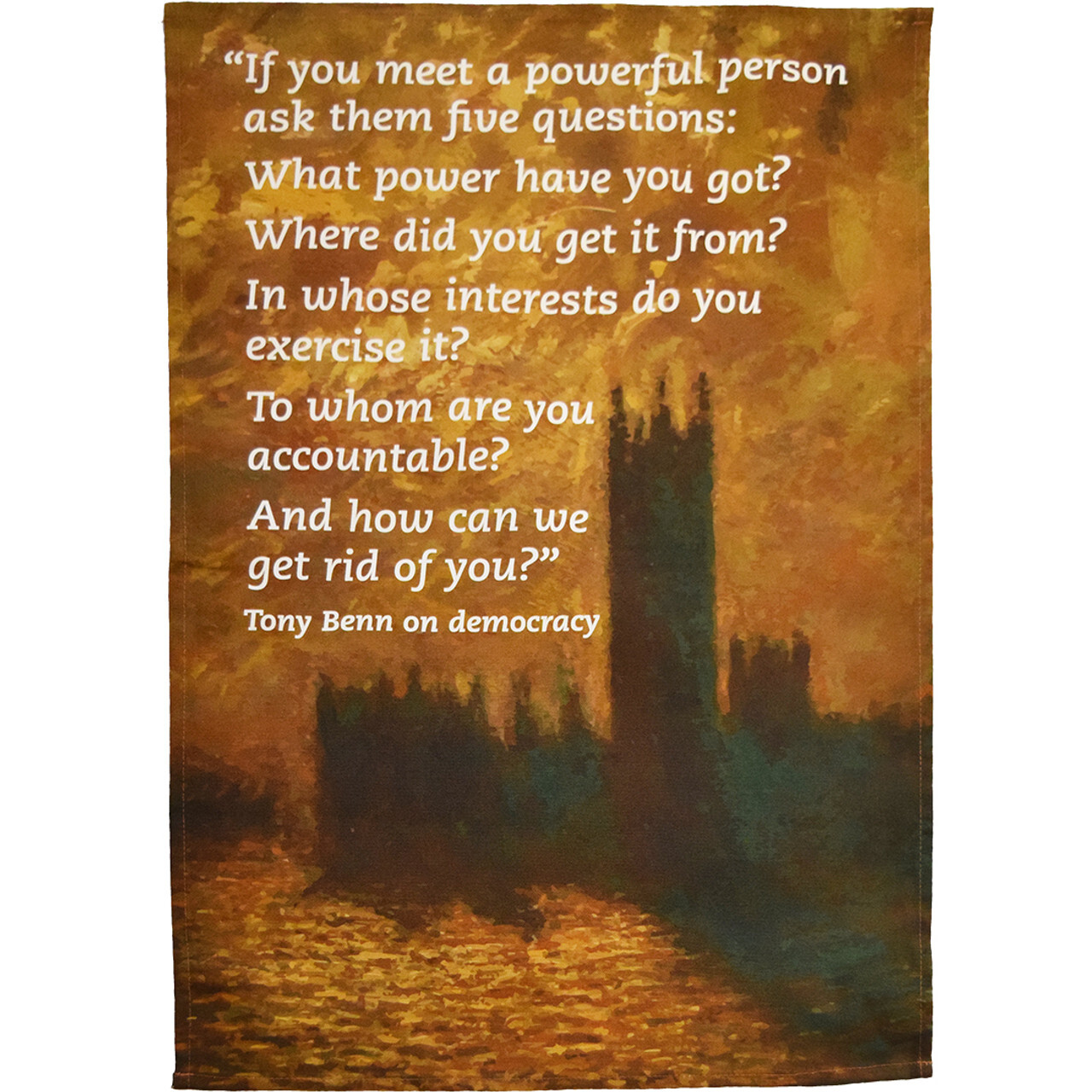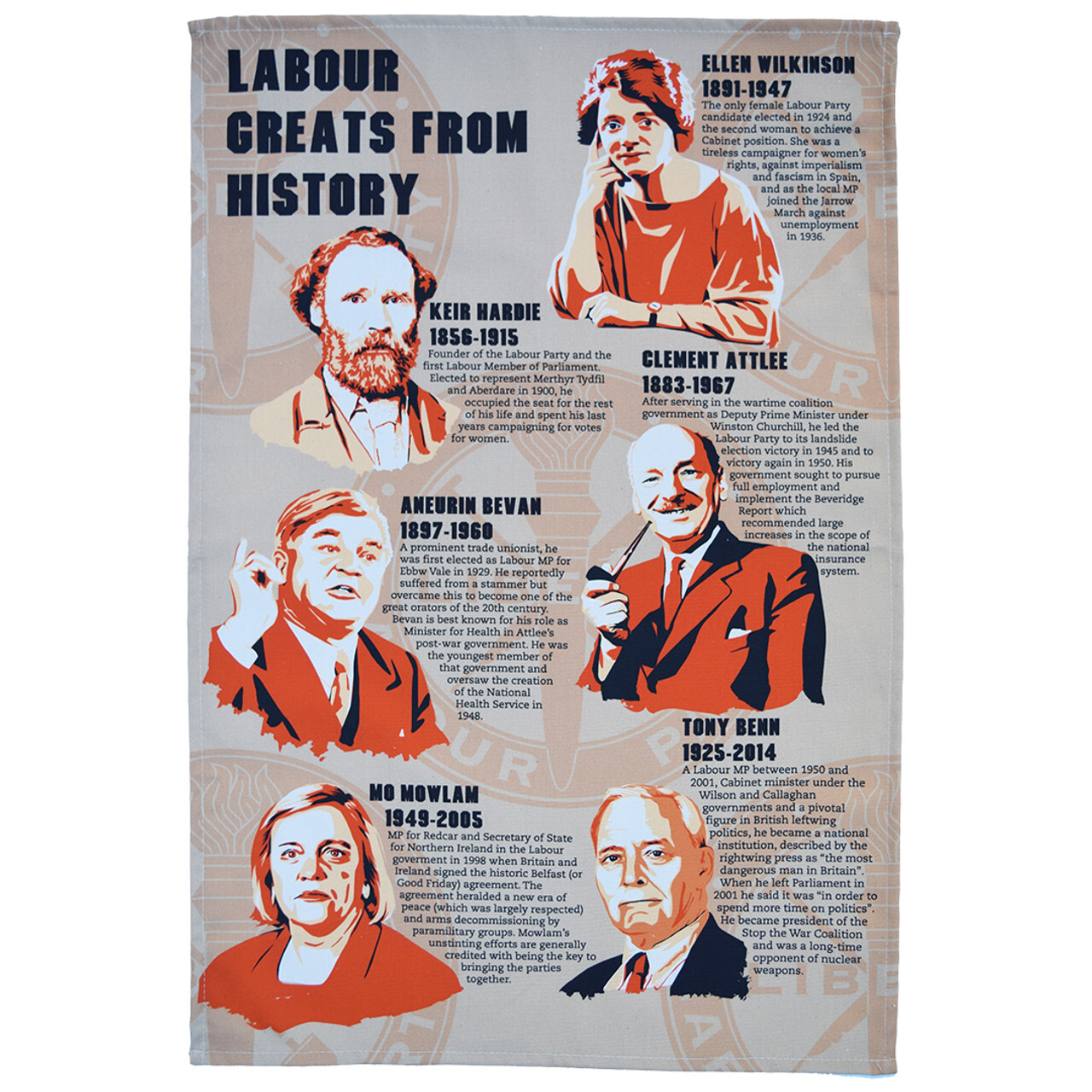Tony Benn: 100 Years Since His Birth
Posted by Pete on 14th Mar 2025
It's been eleven years since Britain lost Tony Benn - Pete charts his move leftward during an epic career in politics

A young Anthony Wedgwood Benn, aged 22 in 1947
Tony Benn, giant of the postwar British Left, passed away on this day in 2014.
Benn was a remarkable individual.
Born into the Liberal Party elite in 1925, he ended up leading the socialist left-wing of Labour.
He fought in WW2 yet went on to become Britain’s most charismatic peace activist, and he renounced his hereditary peerage in order to stay in the House of Commons.
But Tony Benn wouldn’t have wanted to be remembered as an individual.
Tony Benn, the eternal optimist - one of two new designs we've launched to coincide with the centenary of his birth in 1925
See the Tony Benn Two Flames tea towel
Benn was a democratic socialist who believed that collective action is what changes the world.
The story of Tony Benn’s political life is about what he did for social movements and what social movements did for him.
Benn was active in most of the organisations of the modern British Left: the Labour Party, the trade union movement, gay liberation, CND.
And these currents came together most powerfully in the phenomenon of ‘Bennism’ during the 1970s and 1980s, when Benn became the figurehead for the left-wing alternative to neoliberalism in Britain.
By the 1970s, after three decades of social democratic gains – the NHS, nationalisation, a powerful labour movement – the British Right was determined to push back with rampant privatisation, attacks on trade unions, and tax cuts for the rich.
Thatcherism was the ultimate, devastating form of this capitalist counter revolution, but it also had plenty of supporters and happy bystanders within the Labour Party.
It was the specifically socialist Left of Labour coalescing around Tony Benn’s leadership in the 1970s that put forward an actual alternative to the impending doom of Thatcher.
And this was despite the fact that Benn hadn’t always been on the Labour Left...
Benn's prescription for Britain's ills was often 'more democracy'
Tony Benn on Democracy tea towel
Joining the Party at the time of Clement Attlee’s postwar government, Benn had avoided that era’s left alternative represented by Nye Bevan.
And Benn was still a relative centrist when Labour returned to government under Harold Wilson in 1964.
But Benn’s experience of Labour-in-power turned him leftward. He worked as a government minister in both the Labour governments of 1964-70 and 1974-79.
And whereas the so-called ‘realities of power’ have tended to dilute most Labour politicians’ socialism, for Benn it made him more committed.
From within government, Benn learned how the power of capital worked to bully social-democratic parties to stop them enacting the socialist policies that they’d been elected to carry out.
1976 was a big moment in this arc, when the International Monetary Fund (IMF) – a key fighter in the neoliberal counterrevolution – forced Labour to implement radical social spending cuts in return for an urgent loan.
In this context, Benn decided the dominant Labour Right was far too soft on capitalism: it was time to return to the Party’s socialist roots.
Benn served in Labour governments and we've featured him on our historical Labour Greats design
See the Labour Greats of History tea towel
During the late-1970s and 1980s, as Thatcher led the Tory Party into government and then unleashed its increasing extremism upon the working class in Britain, Benn repeatedly contested – without success – for leadership positions in Labour.
Meanwhile, the Labour leadership of the 1980s offered decreasingly vigorous opposition to Thatcher’s cursed new vision for British society.
But Benn didn’t only run for Party offices: ‘Bennism’ also became a platform of radical, socialist ideas that offered an alternative social vision to Thatcherism, rather than meekly compromise with it.
These ideas included the defence and expansion of trade union rights and a strategy of public investment in industry that would make Britain less reliant on politically partisan, right-wing creditors like the IMF.
Many remember Benn as a kind and accessible figure who was willing to listen to and support others
See the Tony Benn Hope tea towel
Bennism also contested the neocolonial violence of Thatcherism at the international level.
While Thatcher embraced apartheid South Africa, Benn was in solidarity with the anticolonial movement there. And he opposed the increasingly violent repression by the British state in Northern Ireland during the 1980s.
Bennism also rallied British opposition to the socially reactionary side of Thatcherism, including its hostility to LGBTQ citizens and migrants.
What’s more, Benn and the rest of the British Left carried this set of ideas into the post-Thatcher era, too, in campaigns against the invasion of Iraq and Section 28, and the later socialist gains of the 2010s.
Tony Benn may have passed away, but the spirit of Bennism lives on.




